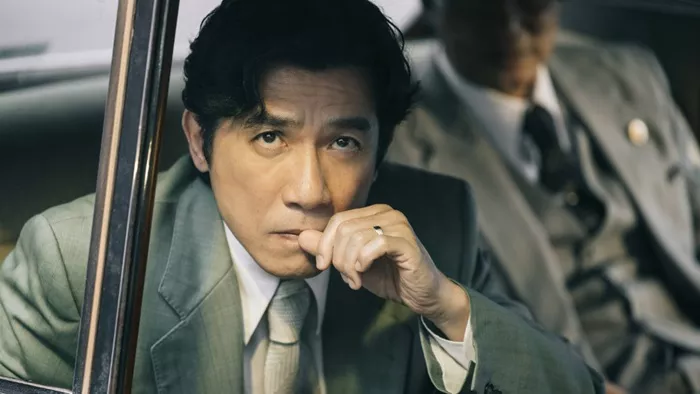Hong Kong cinema enthusiasts are eagerly anticipating the return of screen legends Tony Leung Chiu-wai and Andy Lau, reuniting in the much-anticipated crime thriller “The Goldfinger.” The duo, last seen together in the “Infernal Affairs” trilogy, is set to captivate audiences once more with their chemistry and skillful performances.
Scheduled for release at the end of the month across various Asian regions and North America (from Dec. 30), the pre-release buzz for “The Goldfinger” heavily emphasizes the reunion of Lau and Leung after two decades, echoing their memorable rooftop scene in the “Infernal Affairs” movies, which garnered both critical and commercial acclaim.
Mutual respect and admiration between the two actors abound, each recognizing the other’s acting prowess and professionalism, which have kept them at the pinnacle of the industry for over twenty years. Leung remarked, “I think we’ve gotten a lot more mature over the years and we’ve also built up more acting experience.”
The allure of “The Goldfinger” lies not just in bringing back the acclaimed duo but also in its director and screenwriter, Felix Chong. Known for his work on “Project Gutenberg” and the “Overheard” series, Chong made a significant impact as co-writer of “Infernal Affairs.” The film immerses Lau as a weathered 1980s crime investigator within Hong Kong’s Independent Commission Against Corruption (ICAC), determined to apprehend Leung’s flamboyant head of the Carmen Century Group. Their cat-and-mouse game unfolds across years, amidst a gripping plot involving financial crime, a stock market debacle, and the fall of an investment empire reminiscent of the real-world Carrian Group saga.
Set against a richly detailed period backdrop showcasing Hong Kong’s once-luxurious yet now nostalgically retro locales, “The Goldfinger” harks back to the essence of Hong Kong noir cinema, reminiscent of works by Johnny To and John Woo.
The film steps into a lineage that had somewhat waned due to Hong Kong filmmakers’ focus on mainland Chinese audiences and smaller-budget local productions. Despite recent Hong Kong-made films like “Table for Six,” “Mama’s Affair,” and “A Guilty Conscience” reclaiming local box office shares, their international reception has been limited.
Lau expressed a desire for Hong Kong films to explore broader, global narratives while retaining local essence, stating, “Hong Kong films deserve a bigger market. But I also hope to see more epic stories, bigger, more globalized stories that also incorporate local [Hong Kong] elements.”
Leung emphasized the universal appeal of themes like financial crimes depicted in “The Goldfinger,” expressing belief in their resonance with audiences worldwide.
While Hong Kong’s cinematic dominance may have shifted, the enduring talent remains evident. Leung revealed that digital de-aging technology wasn’t employed, relying instead on traditional methods like makeup, wigs, and costumes to portray his character’s three distinct looks. Adapting to the film’s non-linear narrative structure posed minimal challenges for Leung, affirming, “It was all there on the page.”
As anticipation mounts for “The Goldfinger,” the film stands poised to revive the glory days of Hong Kong’s noir genre, led by the iconic duo of Leung and Lau, promising an immersive and compelling cinematic experience for audiences worldwide.

























